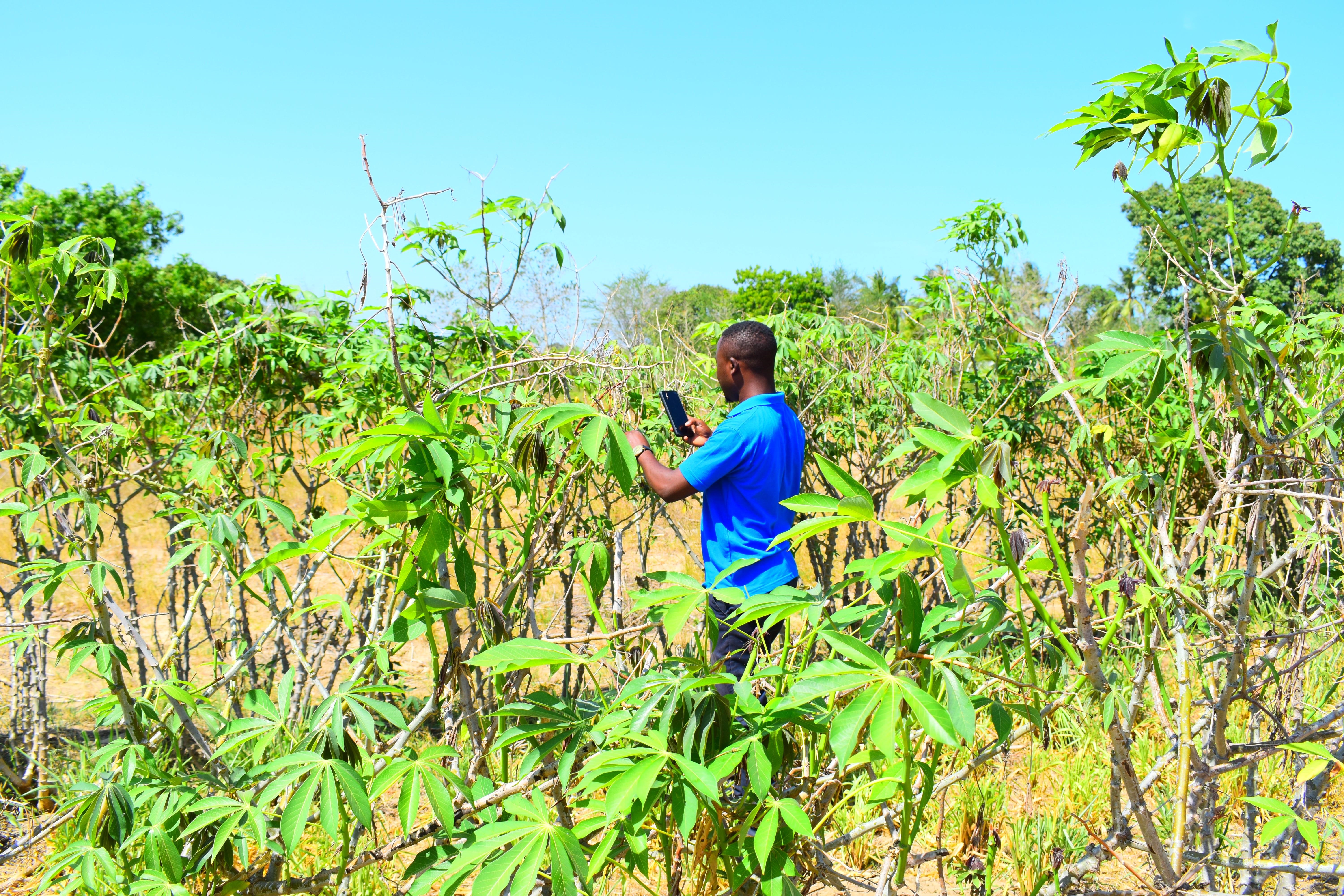Farmers are now able to obtain clean cuttings from their own crops and ensure the continuity of the project, proving it more viable than before, when they used to make losses after planting using infected cuttings.

As the organization focuses on surveillance with the aim of ensuring the growth and multiplication of disease-free crops, Allan Nzaro, a lead farmer with PlantVillage from Kizingitini, has devised a technique that he uses to preserve cassava cuttings for the next planting season.
Mr. Nzaro started farming cassava in 2016 using local seedlings known as Kaleso, but he would make losses because the seedlings harbored pests and diseases. He was later introduced to the Tajirika (KME-08-02) variety by the PlantVillage Dream Team officers, a variety that produces better yields compared to local cassava.
After using Tajirika and noting how good the variety was, he discovered one more thing: the cuttings require proper storage for them to produce clean, healthy tubers.
"After the first harvest, I stored Tajirika cuttings locally under a tree, and when the rainy season approached, I planted 4,000 cuttings on a 1-acre piece of land. Unfortunately, I recorded a loss. Only 120 cuttings managed to produce tubers," he said.
Mr. Nzaro needed to find an alternative to storing his cassava cuttings to keep the production steady. He decided to learn a new way of preserving the cuttings, which has now proved very effective.
He now stores the cuttings by digging a terrace (1 ft depth and 1 m spacing) in an open area, exposed directly to sunlight. He also maintains the seedlings through weekly watering.
"I have intercropped my cuttings with Brachiaria and Clitoria grasses, which help in absorbing moisture that ensures they remain healthy. The technique also helps through the push-pull technology, which ensures pests do not attack the crops," he said, adding that he also practices crop rotation.
Mr. Nzaro advises farmers to avoid storing the KME-08-02 variety under a tree shade because it destroys the cuttings and leads to poor yields.
The ardent farmer mainly grows cassava for business and his own consumption, but he also sells tubers to businessmen who make crisps for tourists, especially during the festive season, to earn income, which fetches him KSh 50 for every three tubers.
Mr. Nzaro has been able to improve his livelihood through the profits he gets from selling cassava, provide for his family, educate his children, and venture into animal rearing.
"Cassava farming is profitable; I have been able to buy two cows to ensure I gain knowledge in livestock keeping and other farming practices.
"PlantVillage has made farming bearable through technology. I have learned how to conduct surveys and manage crop diseases through the PlantVillage Nuru application, which has ensured the growth of clean cassava on my farm," he said.
Source : psu.edu